Latest posts by Michael Gerber (see all)
- From Faith Current: “The Sacred Ordinary: St. Peter’s Church Hall” - May 1, 2023
- A brief (?) hiatus - April 22, 2023
- Something Happened - March 6, 2023
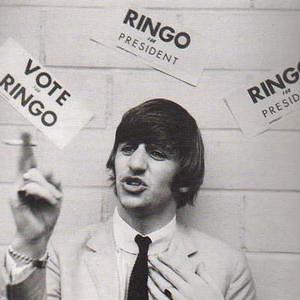
A candidate we can believe in
A friend (thank you Joey Green!) forwarded this amazing film of Australian Kye Smith going through the drum parts of the Beatles’ catalogue in one wonderful five-minute spurt. (“Control yourself, you’ll spurt.”)
Bonus points to Kye for putting “Strawberry Fields” and “Penny Lane” before the Sgt. Pepper tracks in his Beatles drum chronology; demerits for not ending with the drum solo from “The End.”
This video was originally surfaced by Mark Fraudenfelder at BoingBoing.net, and it only took three or four comments for some guy (and you KNOW it was a guy) to dis Ringo in favor of Ginger Baker, Buddy Rich, and Neal (s)Peart. What a maroon.
Anyway, enjoy this.



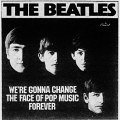

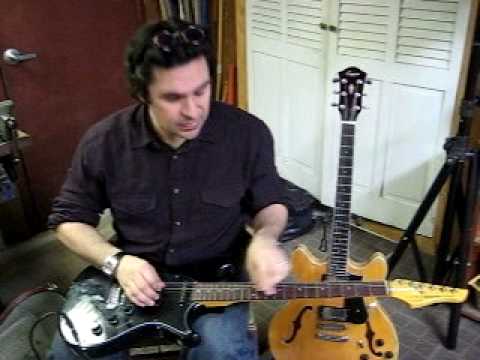
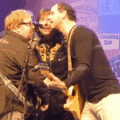

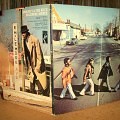
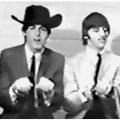

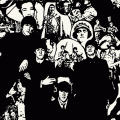

Less than a third of the way thru and already I say:
“Yesterday” drum section FTW! So minimalist! In yer face, John Cage! Ringo did in 2 minutes and three seconds something it took you a whole 4:33 to do.
So true, Glaven. And welcome back — we’ve missed your comments.
.
This chronology definitively disproves that Lennon comment in the 1980 “Playboy” interview that “it’s possible for John and Paul to have created the same thing with two other guys.” NOPE.
Thanks, Nancy.
.
I know that in music, to say, “Sometimes, it’s the notes you don’t play that make all the difference” is a cliche, but I really do think the Beatles – all of them – were really good at knowing when not to play. As H. Sam’s video post shows, Ringo could have played on “Yesterday” but it was absolutely correct for The Beatles (and Sir George Martin) to’ve decided to go the way they did. Less was definitely more, in this case.
.
In fact, it frequently was. I know Eddie Van H. can play the shit out of a guitar (he seemingly never tired of proving it), but I always felt that one of his major faults was that he never knew when not to. “Why play 3 notes where you could just as easily fit 97?” seems to be his philosophy and the philosophy of many a guitar hero.
.
But you really don’t need a whole lot of experience playing guitar to bang out a serviceable version of the leads to, e.g., “I Feel Fine”, “And I Love Her”, “Ticket to Ride”, “Day Tripper”. “Paperback Writer”, “Birthday”, “Get Back”, “Something” … throughout their career, the Beatles seemed to realize the value of simplicity, minimalism. You could easily memorize (and hum) the individual notes to a typical Beatles guitar lead. And, as I said, it wasn’t really that much harder to play one. (John Fogerty also realized the importance of this when composing a pop song.)
.
Clarifications: I like a lot of VH (especially early stuff), so I don’t mean this as a blanket put-down of EVH. I also realize that the Beatles were capable of incredible complexity and intricacy. But complexity and intricacy were never an end in themselves. As late as 1968, Paul on piano accompanied by nothing more than Ringo on the drums led to what John considered one of Paul’s best recordings ever. The lyrics to this gem in their entirety: “Why don’t we do it in the road? No one will be watching us.” [repeat].
.
Parts? Meet your sum, which is way greater than you.
*Why* don’t … etc.
.
Geez.
Fixed that typo, Glaven. And I share your reaction of virtuosity not being an end in itself. Many years ago I had a boyfriend who LOVED Joe Satriani, but I was never able to get on board. I can respect the skill and practice that go into playing like that, but the results just don’t resonate with me.
.
Unlike “Why Don’t We Do It In The Road” (very good example). There’s a reason John was apparently annoyed that he wasn’t included on that track. It’s stripped-down and it really works.
a boyfriend who LOVED Joe Satriani
LOL, I know that guy. Shit, I think we all know that guy.
@Glaven, I always wondered why John Fogerty’s CCR stuff rang the same bell for me, pop-wise. His songs are honed.
It’s a comedy writer fetish — nothing extra.
I’m reading Fortunate Son right now, Fogerty’s autobiography. He really was the main creative force behind CCR and it’s interesting to note that the tensions caused, in part at least, by … I don’t want to say lack of creative tension … but the concentration of creativity in one person? maybe? … caused CCR to implode even more quickly than the Beatles did due (in part) to the struggle over who would have control. When Fogerty finally ceded some control to the two other members (Tom Fogerty had already left CCR by this point), it led to their worst album. And they broke up soon after. Their recording career lasted roughly 4.5 years. That makes the Beatles’ 8 years look pretty good. But it’s weird: With the Beatles, as creative tension got stronger, and the sharing of responsibility spread, the material got better (arguably, but not that arguably); in CCR, the dynamic was the exact opposite, or nearly so.
.
Proving …
.
Well, exactly nothing, I guess. Maybe just showing how rare the Beatles were to be comprised of 4 genuine creative geniuses who needed each other as catalysts to tap fully into their respective genius. O, wow, man – groovy! Does that even make sense?
.
Second note – Michael, I know that you’re not really that high on The White Album, but one of the reasons I like it is that, even this late in the Beatles career, it contains some of their most simple songs, alongside the more complex stuff they’d been doing since at least late 1965. Paul with a guitar on “Blackbird” and “Mother Nature’s Son”; “Rocky Raccoon”; “I Will”; “Me & My Monkey” … to me, a lot of these, musically, sound as though they might just as easily have been written in 1964. <–I mean that in the good sense.
.
To me, the Beatles never forgot the value of simplicity. One could argue they kinda fucked it up when they fetishized it with the Get Back/Let It Be sessions, but we got the great song "Get Back" out of that, at least. Possibly more. YMMV.
@Glaven, part of my ISSUE with the White Album is that all of the awesome songs are ruined, for me, by the burgeoning bad vibes — the really un-Beatle-like sourness — that I start to hear in it. (The Let It Be LP, I haven’t listened to in ten years. No shit. May never listen to it, willingly, again. Turn off “Breakfast With the Beatles” when they play it.) And it’s precisely because I think they do what you suggest so well — reach the simplicity that comes from mature talent — that I find Lennon’s increasing vandalism so outrageous.
That, to me, is what Lennon means when he comes back from India demanding “back to roots” music — it’s basically code for, “Paul, you can’t do what you’re so good at, because it threatens me.” This, plus “not doing all the little things I used to do” is the White Album. Highlights — some of the best stuff the Beatles ever did — marred by Lennon’s crack-up.
Never trust anything John said in an interview with Yoko sitting next to him.
It’s testimony at a Show Trial.
here’s footage of the Beatles doing “Yesterday” in concert, with Ringo drumming:
https://www.youtube.com/watch?v=rRen3jDqViI
I’ve compared Ringo to Dave Tough before, and now I’ll do it again. Artie Shaw said of Tough: “I think he was the most underrated big-band drummer in jazz, and he got a beautiful sound out of his instrument. He tuned his drums, he tried to achieve on them what he heard in his head, as we all do, and I think he came as close as you can get. He refused to take solos. Whenever I pointed to him for twelve or eight or four bars, he’d smile and shake his head and go on playing rhythm drums.”
.
Here’s an account of Dave’s performance with Woody Herman:
.
“Saturday afternoon at the Paramount Theater in New York City. The year: 1945. The place was crowded for that time of day. The word was out about Woody Herman’s First Herd.
A bluish light hit the rising stage as the Herman band rose out of the pit, playing Woody’s familiar theme, ‘Blue Flame.’ When the 16-piece band hit stage level, it exploded into ‘Apple Honey’ and immediately displayed great ensemble power as it dashed though this up-tempo ‘head’ arrangement. My eyes were on the little drummer.
He went about his business with little of the grace of a Krupa and Jones, and none of the fireworks of Rich. But the excitement built as Tough, without physically giving the impression of strength, manipulated the band much as an animal trainer would a beautiful hard-to-control beast, making it respond to him. He cracked the whip under the ensemble and brass solo passages adding juice and muscle to the pulse and accents. Each soloist got individual treatment – a stroke here, an accent there, a fill further on, all perfectly placed.
He moved the band from one plateau to another, higher and higher. By the time the band was about to go into the final segment, the audience was totally captured. There was a point during this last section when it felt as though the band would take us through the roof.
When the piece came to an end with four rapid bass drum strokes, I couldn’t figure out what he had done. He had been in the foreground only once during a four bar break, …, otherwise his was the least self-serving performance I had ever witnessed. I turned to my friend. ‘He has no chops. How’d he do it? What happened?’
He smiled, not quite as puzzled as I. ‘It might not have seemed like much,’ he said. ‘But whatever he did, he sure lit a fire under that band.’” – Burt Korall
@Michael, I’m not sure I follow your White Album comment all the way through, specifically the intriguing concept of Lennon’s vandalism? I know John was demanding back to roots music after India, but my impression was always that Paul was more or less on the same page—he had, after all, written “Lady Madonna” before they set off, and all the songs Paul wrote in India suggest that he was also moving away, for the time being, from psychedelic or quasi-symphonic music. I think the two of them were on the same page about that much. I agree that the White Album “fails” compared to other Beatles albums because there’s a tangible feeling throughout it that it isn’t a team effort: one never feels like this is all four Beatles enjoying the process of making music, which, no matter what John said later, is a key part of why Pepper and MMT are classics—John’s contributions as a team member on Getting Better and She’s Leaving Home and Your Mother Should Know make it a Beatles record, and to me, at least, John needed to be on board for it to be a believable Beatles project. By 1968, John’s on heroin and all the delicate balances that make the Beatles work are toppling.
@Michael, I think White’s when Lennon starts not showing up for other people’s tracks. That reads as purposeful sabotage to me, a kid trying to break his toy so no one else can play with it. That’s what I was referring to specifically, though as discussed recently John’s behavior beginning in May 1968 is appalling. “Unprofessional” for sure, “unfriendly” certainly, “destructive” I’d say…I don’t think John Lennon did things without thinking about their effects. He was too smart a man for that.
John’s contributions as a team member on Getting Better and She’s Leaving Home and Your Mother Should Know make it a Beatles record, and to me, at least, John needed to be on board for it to be a believable Beatles project.
And this is the tragedy of John’s absurd belief that Paul was taking over the group. It’s JOHN, not Paul, that makes something a Beatles record — and that held true right up until “Free As a Bird.”